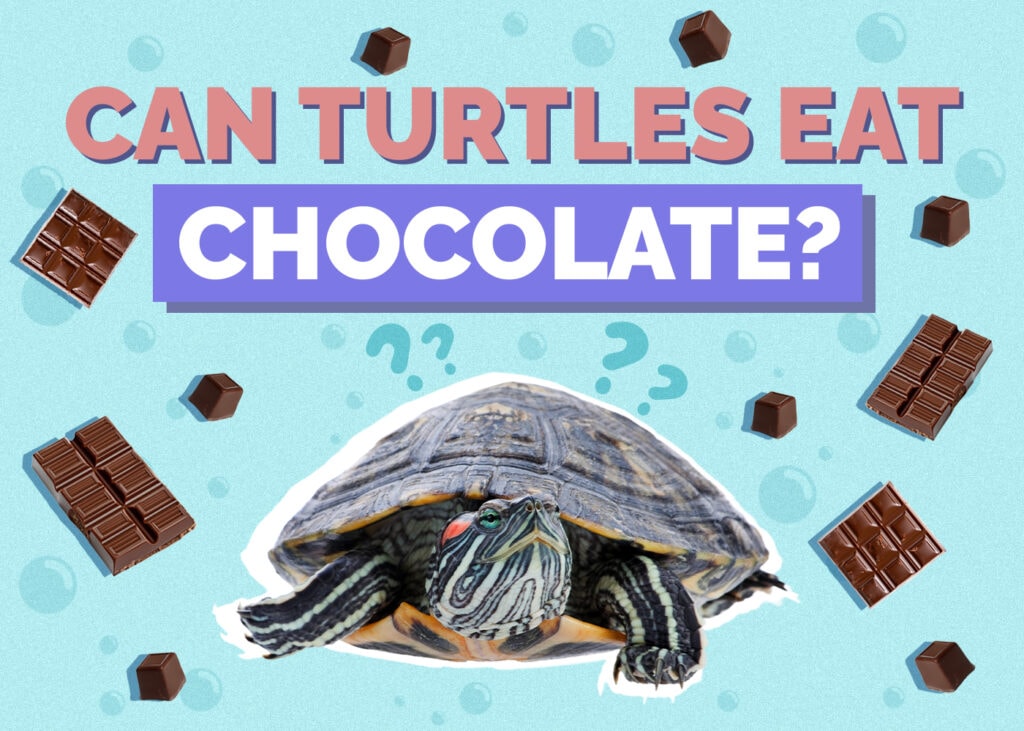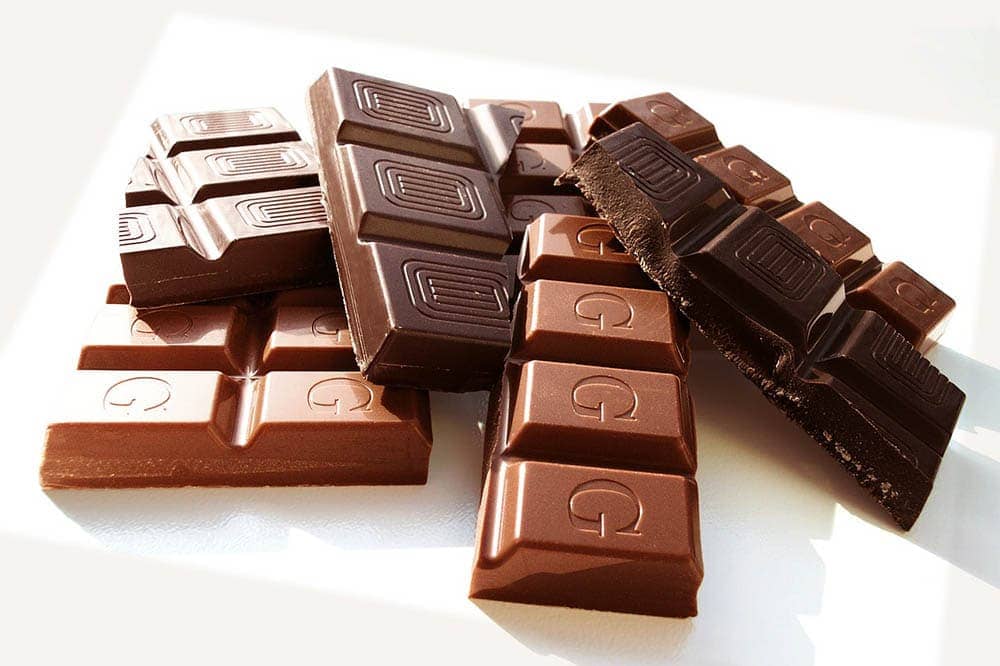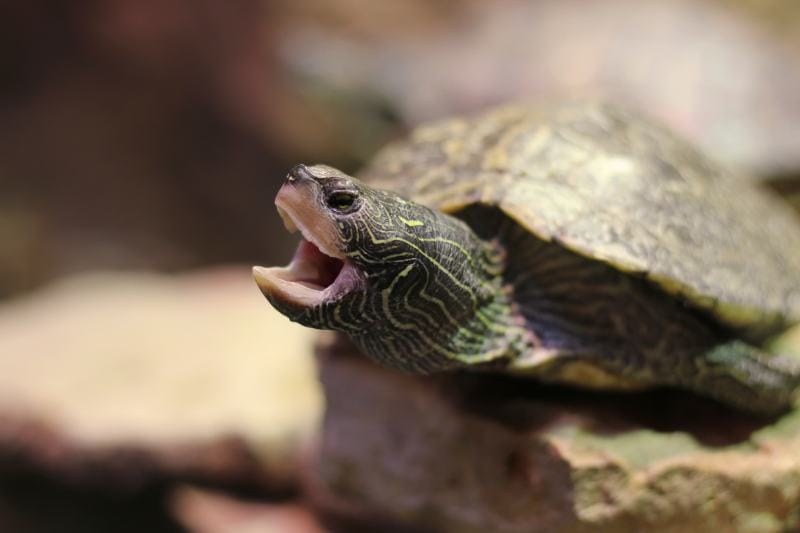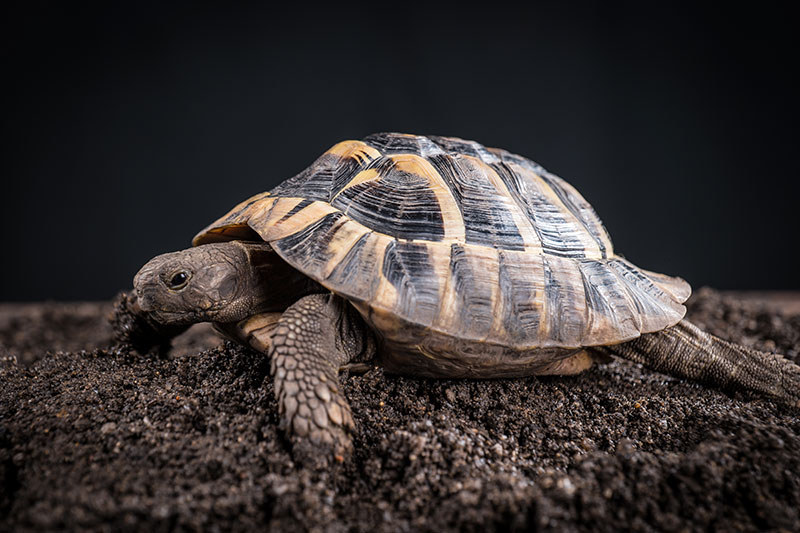Can Turtles Eat Chocolate? Vet-Reviewed Facts & Safety Guide

Updated on

Click to Skip Ahead
Any pet becomes a member of the family, and it’s only natural to want to share our little pleasures with them, whether it’s a piece of chicken from your dinner, a lick of ice cream on a hot day, or a slither of chocolate when it’s treat time. When it comes to feeding your pets human food, it is vital to do research before you allow your pet to indulge. So you want to know if turtles can eat chocolate? The simple answer is no. Chocolate contains high amounts of sugar, dairy, cocoa, preservatives, and emulsifiers, all of which can be harmful to your turtle. It also contains theobromine and caffeine, which can be toxic.
Turtles Cannot Eat Chocolate
Turtles cannot eat chocolate since it is unhealthy for them, and can be toxic in large doses. Every species has different dietary needs, and because turtles are reptiles, their digestive and metabolizing processes are different from ours. Reptiles like turtles have a slower metabolism than ours due to their exothermic nature and low activity.
Chocolate contains theobromine, which a lot of us know is toxic for dogs. Unfortunately, it is the same for your turtle and is one of the main reasons turtles shouldn’t eat chocolate. This goes for any type of chocolate: milk, dark, or white. The darker the chocolate, the higher the amount of theobromine. Although caffeine is found in much lower amounts, it is also a toxic substance to turtles.
Furthermore, chocolate contains high amounts of sugar, dairy, cocoa, preservatives, and emulsifiers, which can be harmful to your turtle. In fact, it’s best to avoid feeding any human foods to turtles, especially sugary, highly processed foods.
Pets like turtles are not a domesticated species in the way that cats and dogs are. Their anatomy and physiology are basically the same as they are in the wild. For this reason, their diet in captivity should resemble that of their wild relatives as closely as possible, and chocolate definitely doesn’t feature here.

Is Chocolate Dangerous for Turtles?
Chocolate in high quantities can be toxic for turtles, and even in small amounts, it can have some harmful effects. The theobromine and caffeine in chocolate can cause chocolate toxicosis, which can be life-threatening. These toxic ingredients can quickly circulate in the body and metabolize much slower, which means that they will stay in the body for a long time, and overload the nervous and cardiac systems.
The severity of toxicity will be based on the amount and type of chocolate ingested, and the turtle’s age and weight. One ounce of milk chocolate per pound of a dog’s body weight is considered potentially lethal, so we imagine that the dose needed for a small turtle is much lower. The longer the toxins are in the body, the more potential for irreversible damage and, in some cases, death.
Besides the potentially toxic ingredients, chocolate also contains dairy, which can cause digestive issues for your turtle since they lack the enzymes to break down dairy products. The high sugar content can put a strain on their intestinal flora, leading to further health issues.
What Are the Signs Of Chocolate Toxicosis In Turtles?
If your turtle has broken into your chocolate stash, or someone has been a little heavy-handed when sharing out the treats, here are some signs that you need to get your turtle to a veterinarian immediately:
- Rapid breathing
- Restlessness
- Muscle tremors
- Difficulty walking or moving
- Vomiting
- Diarrhea
- Lethargy
- Disorientation
- Irregular heartbeat
- Seizures
Fatalities from chocolate toxicity are usually due to cardiac arrhythmia, hyperthermia, and respiratory failure. If you notice any of these signs within 6–12 hours of ingestion, contact your veterinarian as soon as you possibly can. In the meantime, keep your turtle hydrated by giving it water.

What Can Turtles Eat Instead of Chocolate?
Besides the fact that chocolate can be toxic and harmful to your turtle’s health, while it may taste good, it does not provide any nutritional benefit. Chocolate is not something you would find a turtle eating in the wild, and pet stores provide safe and nutritious foods. However, there are some human foods that your turtle can have, such as:
- Cucumbers
- Carrots
- Cantaloupe
- Strawberries
- Beetroot
- Apples
- Raspberries
- Plain cooked meat
Treats should be cut into bite-sized pieces and either placed in a feed bowl, or hand fed to your turtle as a way to build a bond with you. This should not replace your turtle’s diet and should only be added as an occasional treat. In general, a turtle’s diet should be free of processed sugars and foods, and they should be fed a vet-recommended, balanced diet.
Conclusion
Turtles cannot eat chocolate. Chocolate, whether it’s dark, milk, or white, contains toxic ingredients such as theobromine and caffeine, which are toxic to turtles. It also contains a number of ingredients that can cause health issues. Turtles would never eat chocolate in the wild, so there is no reason to feed it to your pet turtle. Instead, keep it all for yourself and give your turtle fresh fruit or vegetables such as carrots, apples, or strawberries to safely snack on.
Featured Image Credit: Tetiana Bykovets, Unsplash












